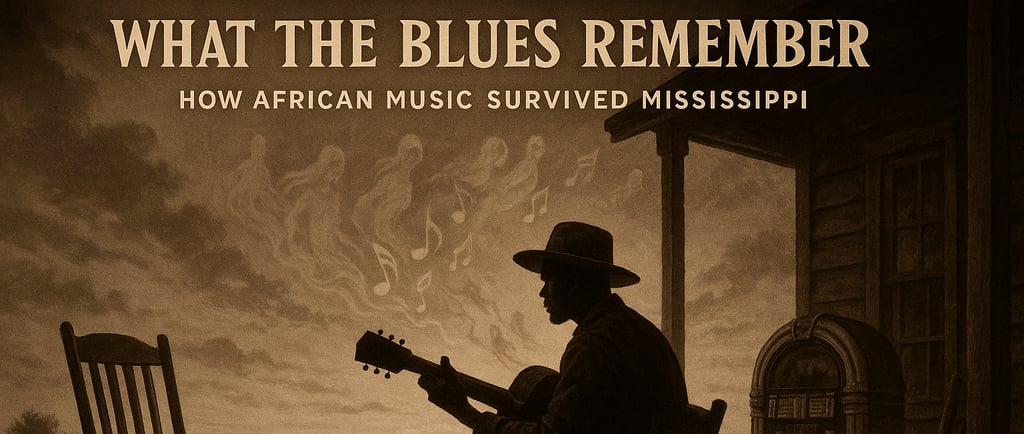🎶 “What the Blues Remember: How African Music Survived Mississippi”
When you hear a blues guitar bend, you're listening to survival. Not just a sound—but a lineage. From ring shouts and field hollers to gospel wails and jazz riffs, African-descended music didn’t just influence American sound—it invented it. In Mississippi, the blues isn’t a genre. It’s an archive. And in classrooms, it deserves to be taught that way.
SINNERSAFRICAAFRICAN AMERICANBLACK DIASPORAMISSISSIPPI DELTA
5/7/20251 min read


When you hear a blues guitar bend, you're listening to survival. Not just a sound—but a lineage. From ring shouts and field hollers to gospel wails and jazz riffs, African-descended music didn’t just influence American sound—it invented it.
In Mississippi, the blues isn’t a genre. It’s an archive. It carries spiritual resistance, coded communication, and ancestral pride that were nearly erased by slavery and segregation. These weren’t just songs. They were sonic lifelines.
The Djembe, the Banjo & the Bending Note
The djembe drum crossed the ocean with West African captives. The banjo, once mocked, was born from its body. That twang? That was grief. That repetition? That was prayer. Blues emerged when Black voices refused to be silent—even when language was stolen.
What Enslavement Tried to Erase, the Blues Recorded
Songs like "Trouble So Hard" and "Crossroad Blues" weren't entertainment. They were documentation. Feeling turned to frequency. A chorus became a coded message: Keep going. We are still here.
Why Music Is a Primary Source
You wouldn’t assign a textbook without citations. Why not treat music the same? Lyrics, rhythm, even silence—all are legitimate historical texts.
Legacy
Explore African spiritual legacy in the diaspora.
Connect
Empower
info@beneaththebones.com
+1 (279) 206-0750
© 2025. All rights reserved.